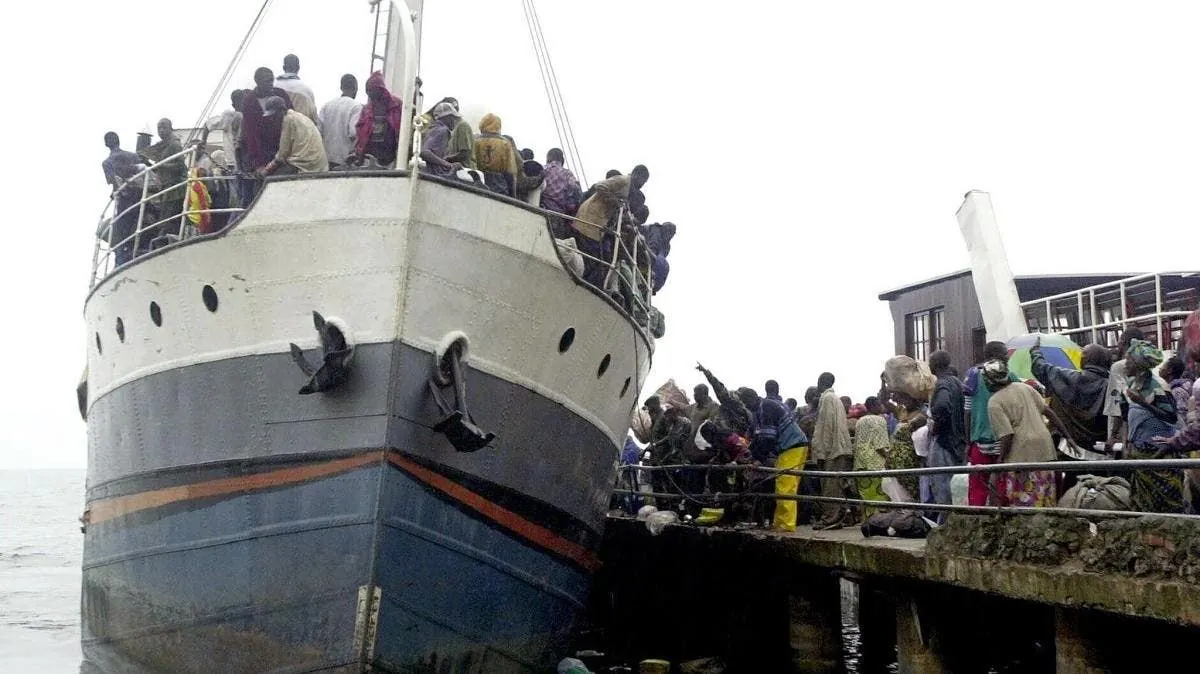On October 3, 2024, a devastating boat accident occurred on Lake Kivu in the Democratic Republic of Congo (DRC). According to Colonel Molatelo Motau of the Southern African Development Community (SADC) mission in the DRC, approximately 23 bodies have been recovered, and 40 individuals have been rescued as of October 4, 2024.
Lake Kivu, one of the African Great Lakes, is situated on the border between the DRC and Rwanda. Covering a surface area of 2,700 km² and stretching 90 km in length, it serves as a vital transportation route for local communities. However, the lake's significance extends beyond its size, as it is known for its unique geological features and potential hazards.
The accident involved a two-deck vessel that capsized in seemingly calm waters. A video of the incident, which Reuters was unable to immediately verify, appeared to show the boat tilting sideways before overturning. This tragic event highlights the ongoing safety concerns surrounding water transportation in the region.
Local migration authorities provided initial passenger information, indicating that approximately 45 males and 35 females were registered on board. However, these figures may not be definitive, as several survivors reported seeing nearly 200 people on the boat. This discrepancy raises questions about potential overloading, a common issue contributing to boat accidents in the DRC.
The SADC, an organization established in 1992 with 16 member states including the DRC, has been actively involved in the rescue operations. The DRC joined SADC in 1997, and the organization's presence in the country extends beyond disaster response to promoting sustainable economic growth and socio-economic development in the region.
Lake Kivu's unique characteristics contribute to both its importance and potential dangers. As the 15th deepest lake in the world, with a maximum depth of 475 meters, it contains large amounts of dissolved methane and carbon dioxide. This composition makes it one of Africa's most dangerous lakes, with the risk of limnic eruptions that can be deadly to nearby populations.
Despite these risks, the lake's shores are densely populated, with major cities like Goma and Bukavu situated on its banks. The lake is also home to various fish species, including the Tanganyika sardine, and plays a crucial role in the local ecosystem and economy.
This recent accident underscores the need for improved safety measures and regulations for water transportation in the DRC. As boat transport remains a crucial means of travel for many communities around Lake Kivu, addressing these safety concerns is paramount to preventing future tragedies.
The ongoing rescue efforts and investigation into the cause of the accident will likely provide valuable insights for enhancing maritime safety in the region. As the situation develops, authorities will continue to work towards preventing similar incidents and ensuring the well-being of those who rely on Lake Kivu for transportation and livelihood.
"We saw nearly 200 people on board."
This eyewitness statement highlights the potential severity of the situation and the challenges faced in accurately determining the number of passengers affected by this tragic event.
